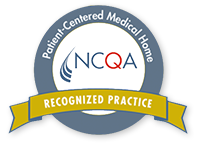
Down Syndrome Screening Options
As women, on the day that we are born, we have already made the eggs that we will ever have. The eggs develop up to the point of division and then freeze. The egg remains there in that state until the day we ovulate. At that time, the division completes and exactly half of our genetic make up is sent off to meet the sperm which is carrying exactly half of our partner’s genetic material as well. As we age, the eggs age too. Each year, but especially as we reach 35 and older, there is an increased chance that when the division occurs, it is complicated by some of the pairs failing to separate. When this happens, too many chromosomes are sent off in the egg. Depending on which chromosome is sent, this could result in failure or fertilize, failure to develop resulting in miscarriage, or a chromosomally abnormal fetus such as Down syndrome.
The original AFP (alpha fetal protein) screening for Down Syndrome was paired with screening for Spina Bifida as a blood test done in the second trimester between 15-18wks of pregnancy. Over the years, we have added three other components to this test which is now referred to as the Quad Screen. A screening test cannot diagnose these problems, but can only give a rough risk assessment (Something like 1 in 50 or 1 in 2000). An abnormal screening test only means that you are at higher risk for one of these conditions that we would have guessed based on age or any other risk factors. It is meant to help identify pregnancies where further evaluation may be warranted. 1 in 20 tests are screen positive (abnormal) and most of these babies were later determined to be perfectly normal.
The next step when the test is abnormal is to have a Level 2 ultrasound. Many people think this means an ultrasound done on a higher tech machine, but a Level 2 is a more extensive review of the physical findings including basic anatomy, measurements for growth, fluid, and placenta location (these are part of a Level 1), but also include more detailed views of the heart and findings (markers) that are associated with different genetic syndromes. A Level 2 is reviewed by a Maternal Fetal Medicine specialist who is an ObGyn who has done special training in ultrasounds and pregnancy complications. The presence of abnormal features may increase the risk assessment provided by age or the Quad screen. They also provide genetic counseling and invasive procedures such as an amniocentesis.
An amniocentesis, unlike a screening test, is able to definitively diagnose Down Syndrome or, hopefully, confirm that the chromosomes are normal. It can take up to two weeks for these results to be available. While we can diagnose Down Syndrome before birth, we cannot correct it in anyway. Some people do consider pregnancy termination for this condition. For others, this is not an option that they are interested in, but they do want to know exactly what to expect at delivery.
Now, a newer test called the Nuchal Translucency is available that can screen for Down Syndrome much earlier, usually between 11 and 13 weeks. This is why it is also sometimes call the First Trimester test. This test combines the measurement of the clear area behind the fetus’ neck with a blood test for 2 other blood proteins. Like the Quad Screen, it will generate a risk assessment. At this point it is too early for an amnio, but similar genetic information can be obtained by a placental biopsy called a chorionic villus sampling (CVS). Parents may choose to terminate at this earlier gestational age which carries fewer risks to the mother. This is often a more private and less complicated time to do that, about 5 weeks sooner than we could before. When the test is normal, people may still test for spina bifida after 15 weeks, but the Down Syndrome test is not repeated.
At MidCarolina, we offer all testing to every patient of every age. We do recommend that women over 35 at least have Level 2 ultrasound and genetic counseling, even if they do not want the Nuchal Translucency. We will schedule this for you at either the UNC Women’s Specialty Clinic inside the Rex Birth Center or at Duke Center for Perinatology on Blue Ridge Road. For our patients less than 35, Nuchal Translucency and Level 1 ultrasounds are done in our office.
Screening tests during pregnancy are optional; therefore, it is up to the parents to decide which testing, if any, they would like to have. We understand that this can be confusing and often anxiety provoking. We are happy to discuss these options with you at your prenatal appointments.



